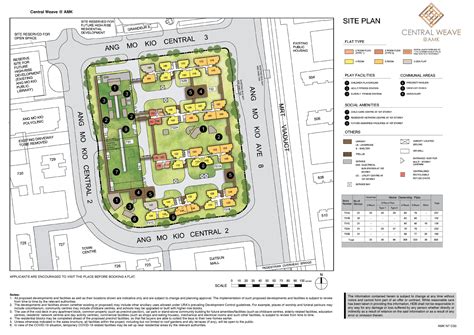Introduction
A stuffy nose, also known as nasal congestion, is a common problem that can be caused by allergies, colds, flu, or sinus infections. It can make it difficult to breathe, sleep, and concentrate. There are a number of ways to get rid of a stuffy nose, including over-the-counter medications, home remedies, and lifestyle changes.

Over-the-Counter Medications
There are a number of over-the-counter medications that can help to relieve nasal congestion. These include:
- Decongestants: Decongestants work by narrowing the blood vessels in the nose, which reduces swelling and congestion. They are available in both oral and nasal spray form.
- Antihistamines: Antihistamines block the effects of histamine, a chemical that is released by the body during an allergic reaction. Histamine can cause inflammation and swelling in the nose, which can lead to congestion.
- Nasal corticosteroids: Nasal corticosteroids are sprays or drops that contain corticosteroids, which are powerful anti-inflammatory medications. They can help to reduce swelling and congestion in the nose.
Home Remedies
There are also a number of home remedies that can help to relieve nasal congestion. These include:
- Steam: Steam can help to thin mucus and make it easier to blow out. You can create steam by boiling water and placing it in a bowl or humidifier. Cover your head with a towel and inhale the steam for 10-15 minutes.
- Saline nasal irrigation: Saline nasal irrigation involves flushing the nasal passages with a saltwater solution. This can help to remove mucus and allergens from the nose. You can use a neti pot or a squeeze bottle to irrigate your nose.
- Nasal decongestant sprays: Nasal decongestant sprays work by narrowing the blood vessels in the nose, which reduces swelling and congestion. They are available over-the-counter in both adult and children’s formulas.
- Hot or cold compress: Applying a hot or cold compress to your face can help to relieve nasal congestion. A hot compress can help to reduce inflammation, while a cold compress can help to numb the pain.
- Chicken soup: Chicken soup has been shown to have anti-inflammatory properties, which can help to reduce nasal congestion.
- Ginger tea: Ginger tea can help to thin mucus and make it easier to blow out.
- Honey: Honey has antibacterial and anti-inflammatory properties, which can help to relieve nasal congestion.
Lifestyle Changes
There are also a number of lifestyle changes that can help to prevent and relieve nasal congestion. These include:
- Avoid allergens: If you are allergic to certain allergens, such as pollen, dust, or pet dander, avoiding these allergens can help to prevent nasal congestion.
- Use a humidifier: A humidifier can help to add moisture to the air, which can help to thin mucus and make it easier to blow out.
- Get regular exercise: Regular exercise can help to improve circulation and reduce inflammation, which can help to relieve nasal congestion.
- Drink plenty of fluids: Staying hydrated can help to thin mucus and make it easier to blow out.
- Elevate your head when sleeping: Elevating your head when sleeping can help to reduce fluid buildup in the nose, which can help to relieve nasal congestion.
Common Mistakes to Avoid
When trying to get rid of a stuffy nose, there are a few common mistakes to avoid. These include:
- Using decongestants for too long: Decongestants can be effective for short-term relief of nasal congestion, but using them for too long can lead to rebound congestion. This is because decongestants can cause the blood vessels in the nose to become narrower, which can lead to even more congestion.
- Using nasal sprays for too long: Nasal sprays can be effective for short-term relief of nasal congestion, but using them for too long can lead to rebound congestion. This is because nasal sprays can cause the blood vessels in the nose to become narrower, which can lead to even more congestion.
- Not drinking enough fluids: Staying hydrated can help to thin mucus and make it easier to blow out. However, drinking too much caffeine or alcohol can actually dehydrate you and make nasal congestion worse.
- Smoking: Smoking can irritate the nasal passages and make nasal congestion worse.
FAQs
1. What is the best way to get rid of a stuffy nose?
The best way to get rid of a stuffy nose depends on the underlying cause. If your stuffy nose is caused by allergies, you may need to take antihistamines or avoid allergens. If your stuffy nose is caused by a cold or flu, you may need to take decongestants or pain relievers.
2. How long does a stuffy nose typically last?
A stuffy nose typically lasts for 7-10 days. However, it can last longer if it is caused by an underlying medical condition, such as allergies or sinusitis.
3. When should I see a doctor about a stuffy nose?
You should see a doctor if your stuffy nose is severe, does not improve after 10 days, or is accompanied by other symptoms, such as fever, headache, or facial pain.
4. Are there any natural remedies for a stuffy nose?
There are a number of natural remedies that can help to relieve nasal congestion, such as steam, saline nasal irrigation, and ginger tea.
5. Can I use decongestants or nasal sprays for a long time?
No, you should not use decongestants or nasal sprays for a long time. Using these medications for too long can lead to rebound congestion, which is when the nasal congestion gets worse after you stop using the medication.
6. What are some lifestyle changes that can help to prevent nasal congestion?
There are a number of lifestyle changes that can help to prevent nasal congestion, such as avoiding allergens, using a humidifier, getting regular exercise, drinking plenty of fluids, and elevating your head when sleeping.
7. Can I use essential oils to relieve nasal congestion?
Some essential oils, such as eucalyptus and peppermint, have decongestant properties. You can add a few drops of these oils to a diffuser or humidifier to help relieve nasal congestion.
8. Can I use a neti pot to relieve nasal congestion?
Yes, a neti pot is a great way to relieve nasal congestion. A neti pot is a small pot that is used to irrigate the nasal passages with a saltwater solution. This can help to remove mucus and allergens from the nose.
Conclusion
A stuffy nose can be a nuisance, but there are a number of things you can do to relieve the congestion. Over-the-counter medications, home remedies, and lifestyle changes can all be effective ways to get rid of a stuffy nose. If your stuffy nose is severe or does not improve after 10 days, you should see a doctor.
Tables
Table 1: Causes of Nasal Congestion
| Cause | Symptoms | Treatment |
|---|---|---|
| Allergies | Sneezing, runny nose, itchy eyes, watery eyes | Antihistamines, nasal corticosteroids, allergy shots |
| Cold or flu | Fever, chills, cough, sore throat, body aches | Decongestants, pain relievers, rest |
| Sinus infection | Facial pain, pressure, headache, fever, fatigue | Antibiotics, nasal corticosteroids, surgery |
| Deviated septum | Difficulty breathing through one or both nostrils, nosebleeds, facial pain | Surgery |
Table 2: Over-the-Counter Medications for Nasal Congestion
| Medication | Type | Dosage | Side Effects |
|---|---|---|---|
| Phenylephrine | Decongestant | Oral: 10-15 mg every 4-6 hours | Nasal spray: 1-2 sprays in each nostril every 12 hours |
| Pseudoephedrine | Decongestant | Oral: 30-60 mg every 4-6 hours | Nasal spray: 1-2 sprays in each nostril every 12 hours |
| Loratadine | Antihistamine | Oral: 10 mg once daily | Nasal spray: 1-2 sprays in each nostril every 12 hours |
| Cetirizine | Antihistamine | Oral: 10 mg once daily | Nasal spray: 1-2 sprays in each nostril every 12 hours |
Table 3: Home Remedies for Nasal Congestion
| Remedy | How to Use | Benefits |
|---|---|---|
| Steam | Boil water and place in a bowl or humidifier. Cover your head with a towel and inhale the steam for 10-15 minutes. | Helps to thin mucus and make it easier to blow out. |
| Saline nasal irrigation | Use a neti pot or a squeeze bottle to flush the nasal passages with a saltwater solution. | Helps to remove mucus and allergens from the nose. |
| Nasal decongestant sprays | Use 1-2 sprays in each nostril every 12 hours. | Helps to narrow the blood vessels in the nose and reduce swelling. |
| Hot or cold compress | Apply a hot or cold compress to your face for 10-15 minutes. | Helps to reduce inflammation and relieve pain. |
| Chicken soup | Eat a bowl of chicken soup. | Has anti-inflammatory properties that can help to reduce nasal congestion. |
Table 4
















